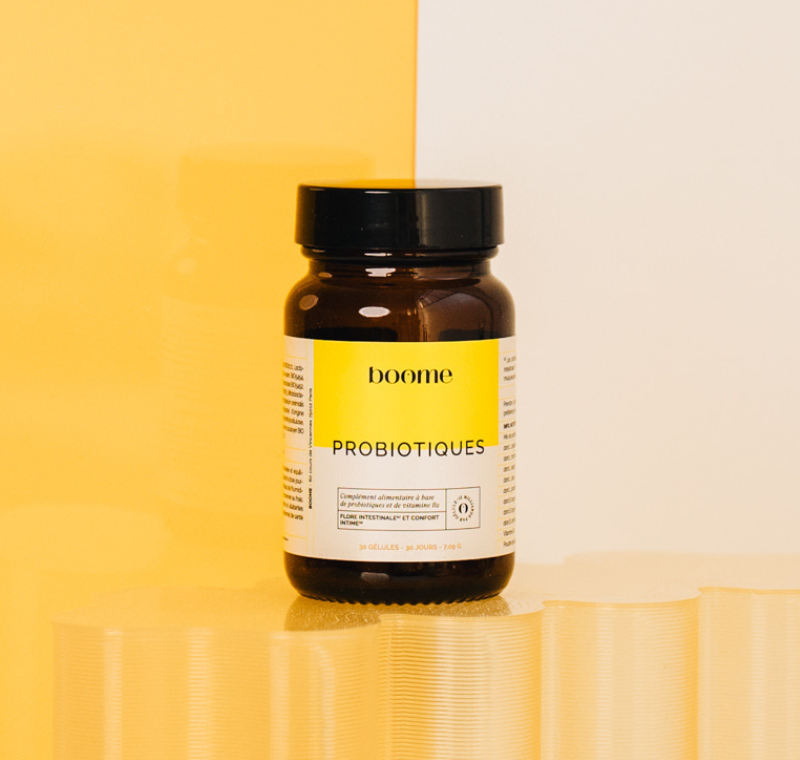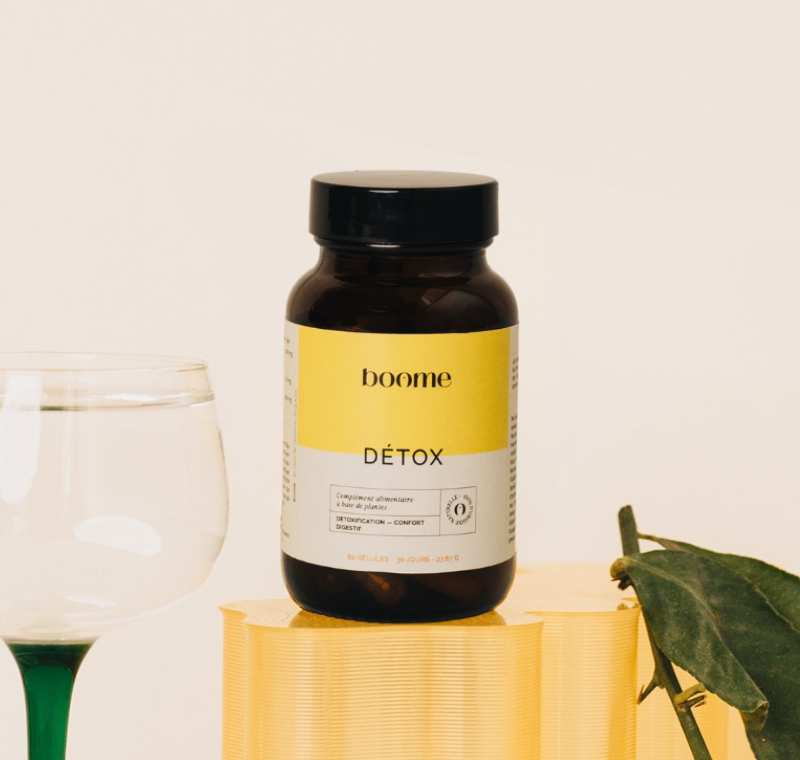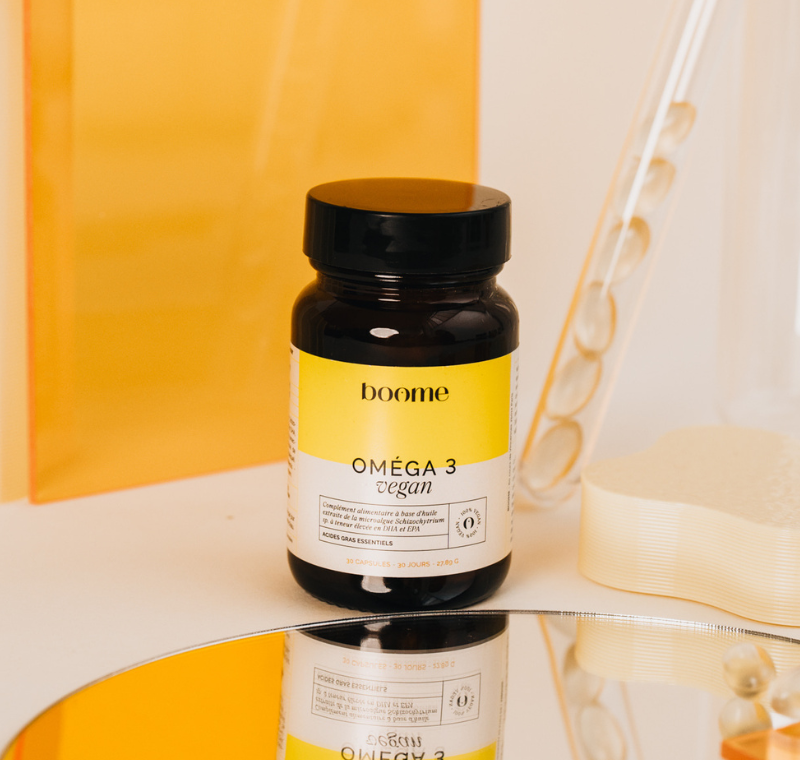
You've finally decided to give your well-being a boost with a course of probiotics, but you're wondering, "When will I really feel their effects?" Good news: probiotics can indeed boost your well-being... provided you know how and when they work. In this article, we reveal the secrets of a successful course, how long it takes to see results, and our best tips for multiplying their benefits. Stay tuned—your microbiome will thank you!
When do we see the effects of probiotics ?
The effects of probiotics can sometimes take time to be felt. They vary mainly depending on your goals and the initial state of your microbiota.
How do you know if your probiotics are working?
Wondering what the first sign of effectiveness of your probiotic regimen is? Pay attention to your digestion! Yes, the benefits of probiotics often begin by contributing to better digestive comfort, by supporting the balance of the intestinal microbiota. Among the most common positive effects are:
- better digestion;
- a reduction in feelings of abdominal discomfort;
- better well-being for people subject to irregular transit;
- a reduction in bloating.
Now you're wondering when you'll finally feel all these benefits? Well, quite quickly for most people! Because they can become noticeable within the first few weeks of treatment. And they're a testament to the probiotic strains' ability to work effectively on your gut flora.
That said, if your gut microbiota is very unbalanced to begin with, you may experience more digestive problems at the beginning of the treatment. Don't worry, this simply means that your intestinal flora is no longer quite used to coexisting with these good bacteria. In this case, you should not stop the treatment but rather take it gradually. Try to space out the doses for 1 to 2 weeks to allow your microbiota to gently get used to the beneficial bacteria that are naturally part of its composition. With a little patience, you will be able to fully benefit from the benefits of probiotics.
The action of probiotics is not limited to improving digestive comfort . Since they also bring other, more subtle changes, such as:
- better energy throughout the day;
- healthy skin ;
- a boost of immune cells ;
- and therefore, greater resistance to seasonal infections.
These small improvements reflect how much a good course of probiotics can change your daily life. So, even if their effects are sometimes less immediate, pay attention to your body's subtle signals. Over time, you will be able to see their positive impact!
Did you know that taking a course of probiotics can be a valuable aid... even when pregnant? To find out more, read our article !
What factors affect the speed of results?
Diet and lifestyle
By now, you've figured it out: probiotics play a key role in balancing your intestinal and vaginal flora. However, you may feel their effects more or less quickly... This is due to a number of external factors that can influence the speed of results.
A diet rich in vitamins and nutrients, for example, plays a key role in the effectiveness of probiotic strains . Conversely, a stressful or unbalanced lifestyle can slow down results. You then risk "fueling" your digestive problems, in addition to altering your intestinal microbiota and your intimate flora.
Quality of the probiotic base
The speed of the treatment's effects also depends on the quality of the probiotics chosen. Therefore, opt for products that contain strains that have been studied and adapted to your problem, such as:
- Lactobacillus rhamnosus: widely studied for its role in reducing digestive discomfort [1]
- Bifidobacterium longum subsp. longum: known for its effectiveness in supporting intestinal balance [2]
- Lactobacillus crispatus: a key strain for maintaining a balanced vaginal microbiota [3]
- Lactobacillus reuteri: known to help strengthen natural barriers against unwanted microorganisms [4]
So, a mix of probiotics for intimate and intestinal flora will be perfect for you!
What is the recommended duration for a probiotic course ?
If you want to fully reap the benefits of probiotics, determining the duration of the treatment is essential. And while this varies depending on your goals and the initial state of your microbiota, a minimum duration of one month is generally recommended. Why? Because this period allows the probiotic strains to gradually establish themselves in the microbiota and begin to interact effectively with the microorganisms already present.
Conversely, if you stop your treatment before the end, or if you are too irregular, you risk not giving the probiotics time to rebalance your intestinal flora and your intimate flora. So, always make sure to follow a daily intake to maximize their effectiveness. You will thus put all the chances on your side to improve your digestive comfort and support the balance of your vaginal flora, while contributing to the proper functioning of your immune system.
Be aware that in some cases (for example, if you have undergone antibiotic treatment), you may be recommended a longer course of treatment, sometimes lasting several months. Indeed, antibiotics, although essential in certain situations, disrupt the microbiota by eliminating both the bad bacteria they target and the good ones. A prolonged course of treatment then helps restore this delicate balance.
Finally, you can also choose to consume probiotics as a preventative measure all year round. This is an excellent idea for promoting a healthy microbiota and intestinal comfort , in summer and winter. And allowing your body to prevent recurring imbalances.
Are you trying for a baby? Probiotics can be your best friend! Our article "Probiotics and Fertility" tells you everything you need to know about the topic.
How to optimize the effectiveness of your probiotic treatment ?
To get the most out of your probiotic treatment from the very first days, we have a few more tips to give you.
Starting with diet! As we mentioned earlier, favoring a varied and diverse diet remains essential for the effectiveness of probiotic strains. Ideally, foods rich in:
- in fiber (such as legumes, raw fruits, whole grains or vegetables);
- in lactic ferments (for example, kefir, sauerkraut, yogurts or even fermented drinks like kombucha);
- in prebiotics (present in various foods such as garlic, leeks, bananas and whole grains).
Fiber and prebiotics nourish the beneficial bacteria already present in the gut, promoting their growth and activity. Lactic ferments, on the other hand, help rebalance the microbiota temporarily. This is why maintaining a balanced diet can't be a matter of a few days a year; it must become a habit to support your microbiota and, therefore, your long-term well-being.
Another tip we love: ideally, take your probiotics on an empty stomach, 30 minutes before breakfast. Why? Because this will allow them to circulate to your intestine without being bothered by your digestion. Less interference with stomach acids, for greater effectiveness! Also, try to consume them daily to boost their effectiveness.
If you are taking antibiotics, wait at least 2 hours after taking your medication to take your probiotics because the antibiotics risk destroying them before they reach the intestine, where they exert their benefits.
Finally, and this may surprise you... Make sure you store your probiotics in a cool, dry place. Like your fridge! Probiotics are living microorganisms that are sensitive to heat and humidity. Keeping them cool helps maintain their viability—and therefore their effectiveness. At Boome, we go even further: our products are kept cool from the moment they are manufactured and throughout their storage at our logistics center. This rigorous cold chain guarantees consistently effective strains once they are delivered to your home!
As you've probably guessed, a good probiotic supplement can be a valuable ally for balancing your vaginal and intestinal flora. But their effectiveness depends on a well-followed treatment plan tailored to your needs. So, to boost their benefits, follow the recommended duration, adopt a rigorous routine, and take care of your lifestyle. So, we told you your microbiota would thank you, right?
Sources:
[1] Ouwehand AC, et al. (2002). Probiotic and other functional microbes: from markets to mechanisms. Current Opinion in Biotechnology, 13(5):483–487.
[2] Fåk F, et al. (2015). Impact of Bifidobacterium longum and Lactobacillus acidophilus on gut microbiota composition and metabolic profiles. Beneficial Microbes, 6(2): 191–201.
[3] Ravel J, et al. (2011). Vaginal microbiome of reproductive-age women. Proceedings of the National Academy of Sciences, 108 Suppl 1:4680–4687.
[4] Vicariotto F, et al. (2012). Effectiveness of Lactobacillus reuteri and Lactobacillus rhamnosus in maintaining urogenital health in women. Journal of Clinical Gastroenterology, 46(Suppl):S73–S80.









